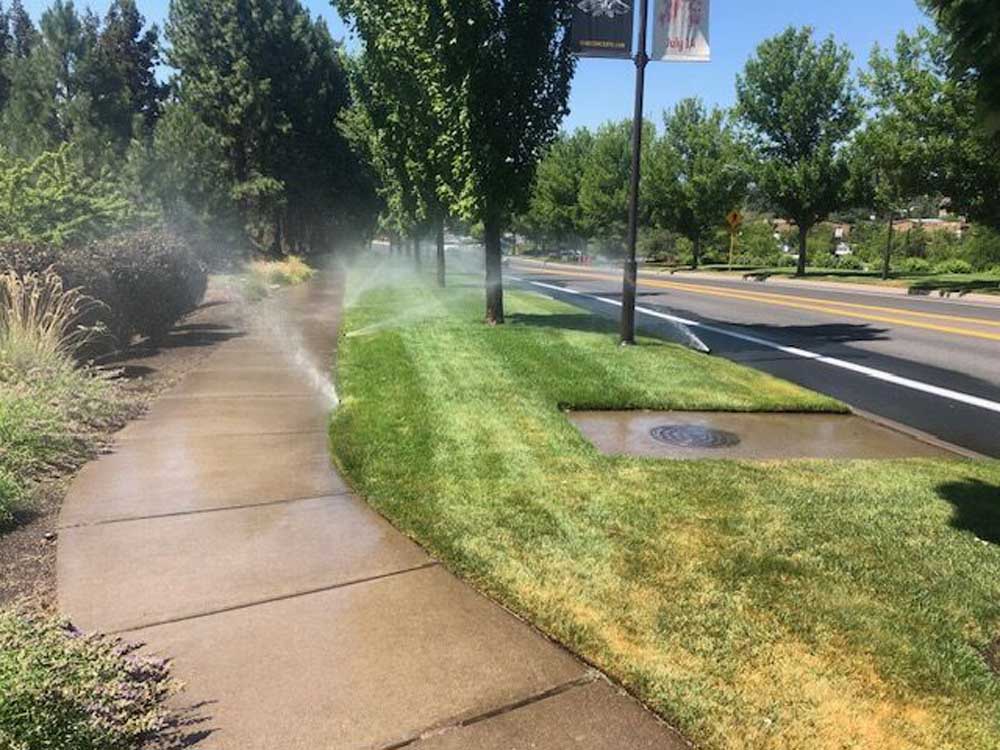Editorial: Should Bend change water rates to encourage conservation?
Published 5:00 am Tuesday, January 21, 2025

- Sprinklers water a planter strip — and the sidewalk — on Bond Street in Bend. A new city of Bend code bans irrigated turf in new planter strips.
Russ Grayson, Bend’s chief operating officer, talked water conservation at a gathering last week about goals for the new Bend City Council. He said the city may change water rates to encourage conservation.
City staff told us it’s “exploring conservation-based rate structures. We are still in the early stages and have not yet finalized a framework or concept….”
Trending
Water for Bend, Redmond or any city in Oregon looking to grow can be a question mark. The Oregon Water Resources Department is trying to match the availability of water with the demand for it. It’s not clear whether Bend or Redmond will get what they want. And even if a city isn’t looking to grow, there’s already concern about dropping water tables. Water conservation also reduces the need for expensive water infrastructure projects to drill for, transmit and purify more water.
So it sure makes sense that the city would take action to conserve.
The city also has said a change in rates might be coming.
It was right in the city’s 2021 Water Management and Conservation Plan that in “the coming years, the City plans to explore implementation of a new rate structure, such as tiered rates, water budget-based rates, or another approach aimed at reducing peak-season demand.”
The next step, city staff told us, is to talk to the Bend City Council and the community about what the city might do with rates.
Most water in Bend is actually used for outdoor irrigation, about 60%, according to a city website. The city does encourage people to replace turf with drought-resistant plants adapted to the local climate and other “WaterWise” initiatives. The city has policies in place to discourage people from watering pavement. And, of course, if a customer uses more water, a customer already pays more.
Trending
Tiered rates could mean that up to a certain level of usage, people will pay one rate for water.
At higher levels of usage, they could pay more, even much more. Some people wouldn’t be bothered by the extra expense in that scenario, which could have the unfortunate outcome of making much outdoor irrigation only a privilege of the wealthy.








